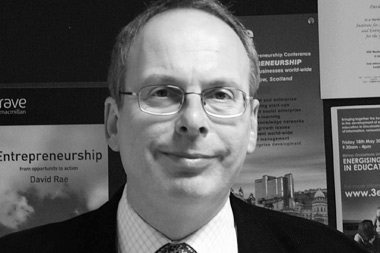How do I create an effective learning environment for employees?

“I want to ensure that my workplace is a great environment for employees to continue to learn in. How can I achieve this?”
Professor David Rae says:
A learning environment should be interactive. To use the example of our initiative, Business Inspiration, one thing we very quickly learned through our courses is the importance of group participation. You can have an engaging, experienced and inspirational figure standing up at the front teaching perfectly valuable things but ultimately people are looking for something they can relate to. We learn some of our most valuable lessons through the interactions we have with peers.
Above all, you need to ensure that the learning environment provides the space to develop ideas, to share experiences and to gain inspiration from one another. Teach with authenticity and credibility – trust is vital between attendees and session leaders. In an environment where people feel secure, you can encourage them to open up about any questions or concerns that directly affect them and the business. By approaching learning as a diagnostic session, you can direct people to seek the answers and solutions independently. People learn by doing, and with the encouragement of a peer group, can find within themselves the confidence and capability they thought they had lost, or never realised they possessed.
We started Business Inspiration as a response to the economic downturn, and found individuals had taken knocks in terms of their competitiveness, personal confidence and the belief they can successfully identify and implement solutions. By putting them in a group with individuals from other departments and other businesses we provided the opportunity for relationship building. People learn as much from the relationships they develop and conversations they have during the process of learning, as from the actual teachings. A leader can never predict just how much a person will take from a teaching session, and you will often be surprised by the feedback you will get.
David Rae is professor of Business and Enterprise at Lincoln Business School

Press & Media Enquiries
For more information or to request interviews, contact CMI's Press Team on 020 7421 2705 or email press.office@managers.org.uk


